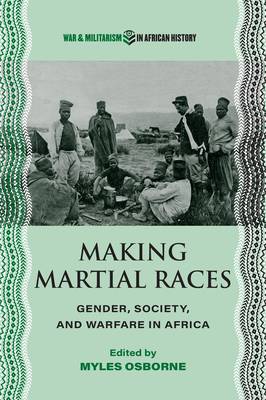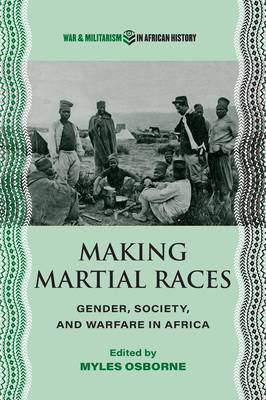
En raison d'une grêve chez bpost, votre commande pourrait être retardée. Vous avez besoin d’un livre rapidement ? Nos magasins vous accueillent à bras ouverts !
- Retrait gratuit dans votre magasin Club
- 7.000.000 titres dans notre catalogue
- Payer en toute sécurité
- Toujours un magasin près de chez vous
En raison de la grêve chez bpost, votre commande pourrait être retardée. Vous avez besoin d’un livre rapidement ? Nos magasins vous accueillent à bras ouverts !
- Retrait gratuit dans votre magasin Club
- 7.000.0000 titres dans notre catalogue
- Payer en toute sécurité
- Toujours un magasin près de chez vous
Description
European colonizers in Africa required the service of local soldiers and military auxiliaries to uphold their power. These African men were initially engaged by the expeditions of European surveyors and explorers during the late nineteenth century, then quickly pressed into service in the notorious campaigns of pacification. Two world wars further expanded both the numbers of African soldiers in European employ and the roles they played; many of these men would continue their jobs into the era of decolonization in the 1960s and 1970s. Colonial administrators and military planners often chose their recruits based on the notion of "martial race"--a label that denoted peoples supposedly possessing an inborn aptitude for warfare and fighting. But the notion always obscured more than it revealed: few Europeans could agree on which "races"--or ethnic groups--were "martial," and in any case, the identities of those groups changed continuously. Nevertheless, this belief remained a fundamental, guiding principle of the European presence in colonial Africa. The concept of "martial race" remains an awkward and ill-fitting Eurocentric category until African contributions, perspectives, and agencies are considered. "Martial race" was never a label neatly affixed by European administrators; rather, African peoples both contested its terms and shaped its contours. This book therefore takes as its starting point the idea of martial race and recasts it as a zone in which African men and women negotiated with their European counterparts, as well as with one another. The contributors to this volume take a broad approach to the topic, one that minimizes divisions between the precolonial, colonial, and postcolonial eras, and thinks through how cultural practices and notions of warfare and martial traditions shifted and were transformed from one period into another. These scholars' research touches on a wide variety of subjects, including -efforts to think about culture and martial race; -the intersection of ethnic identity and the creation of "tribes" with colonial martial race theory; -the connection between colonial ethnography and constructions of martial subjectivities; -the role of gender in shaping martial notions; -the contribution of women to creating or disputing martial identities; -the idea of martial race as it intersected with slavery; -warring traditions and economies of honor as avenues for staking claims to martial genealogies; and -claims to special status by veterans of anticolonial revolutionary wars.
Spécifications
Parties prenantes
- Auteur(s) :
- Editeur:
Contenu
- Nombre de pages :
- 348
- Langue:
- Anglais
- Collection :
Caractéristiques
- EAN:
- 9780821426180
- Date de parution :
- 19-12-23
- Format:
- Livre broché
- Format numérique:
- Trade paperback (VS)
- Dimensions :
- 152 mm x 229 mm
- Poids :
- 480 g

Les avis
Nous publions uniquement les avis qui respectent les conditions requises. Consultez nos conditions pour les avis.






